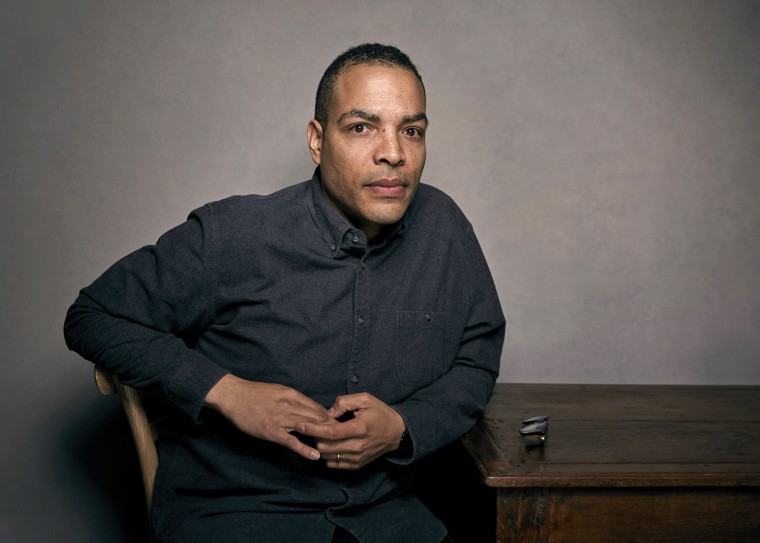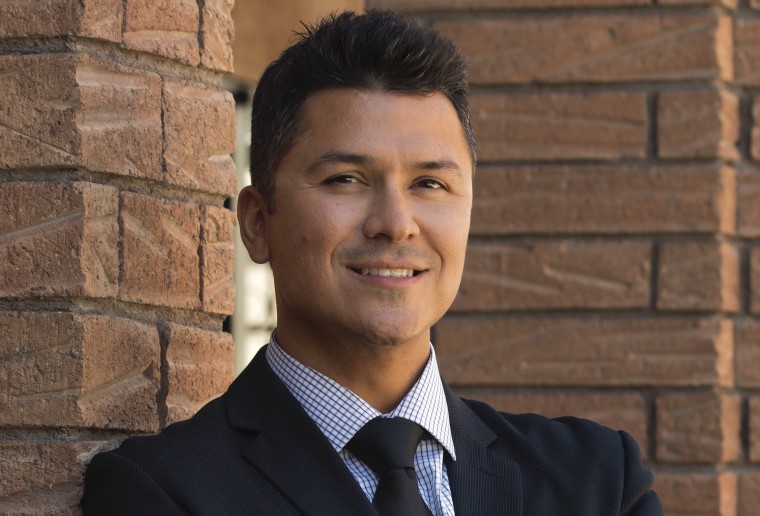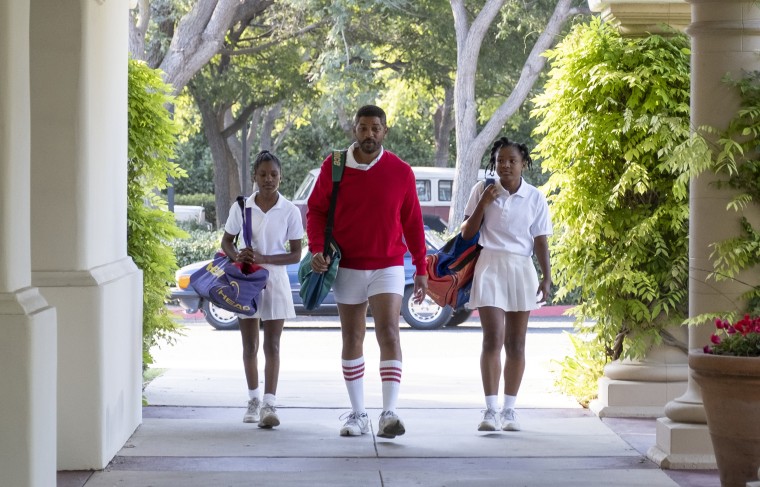They're considered two of the most powerful players in tennis history.
The Black and Latino movie director Reinaldo Marcus Green wants to take viewers back to the moment before Venus and Serena Williams became champions — and all they had was the ambitious plan of a determined father who wore short shorts and a cowboy hat on a tennis court in the city of Compton, in Southern California.
Green is the director of “King Richard,” which premieres nationwide Friday and tells the story of Richard Williams, the father of Venus and Serena (played by Will Smith). Together with his wife, Oracene ‘Brandy’ Williams (played by Aunjanue Ellis), he sets out on a family journey from humble beginnings to the threshold of tennis fame and fortune.
“To the outside world he was quite controversial and outspoken and colorful,” Green said about Williams in an interview with NBC News.
After meeting the family and hearing their story, the director became interested in showing another dimension of Williams’ character.

“He was a dad who just tried to do right by his kids, the best way he could with the tools that he had. And nobody is perfect,” Green said. “He’s learned lessons along the way. He had to, at the end of our film, understand that his daughters were growing up and what do you do when that moment happens. Do you squeeze tighter or do you let go?”
Green, whose father is Black and mom Puerto Rican, was born in the New York City borough of the Bronx and grew up in Staten Island and other parts of the city. Where he lived was not too different from Compton, Green said.
After Green's parents divorced, his mother and father chose to have him and his brother live with their dad. "They really wanted us to have a father figure in the house," Green said. "It was important for my mom as well."
The director said he can’t avoid comparing his father — who was raising two sons to become major league baseball players — with Williams.
“We grew up with a similar father ... I literally grew up on a baseball diamond. I played travel ball and all-star baseball," said Green, who also played in college. "My dad wore those short shorts too. So I knew what it’s like growing up with that parent that other folks think is a little out there, but you in your heart know is a special guy.”
Green wanted to bring that level of complexity and authenticity to viewers when telling the story of two Black sisters who became champions in a sport that has been inaccessible to many diverse children.
The movie is a unique window into the early lives of the Williams sisters, the director said. Viewers will see them take their first steps toward becoming professionals at a young age when their parents were creating a blueprint for all of their future successes in tennis and beyond.
“They are ambassadors for their community,” Green said. “Tennis is only one aspect of what they’ve done.”
Expanding diversity in the courts
Carlos Mendez, the founder of the Multicultural Tennis Association, remembers seeing tennis courts when he was growing up in his predominantly Latino neighborhood in East Los Angeles. But the courts were all locked up.
The Mexican American father sees common ground with Williams, who created a tennis plan for his daughters just 12 miles away in Compton.
“I found a lot of parallels and similarities when I watched the movie ‘King Richard’,” Mendez said in a video interview. “For me, with my daughter, it was pivotal that I encouraged her as a Latina to do something outside of our tradition, our comfort zone.”

Mendez said that he wanted his daughter to grow up with the opportunity to play tennis. But when his daughter started at a country club as the only Latina out of 30 kids, he says that the initial goal of sharing his love for tennis with his family grew into sharing the sport with other members of his community.
“We don’t have a lot of kids that look like me or like my kids playing out there,” he said. “Less than 6 percent of college tennis players are Hispanic, compared to over 25 percent who play soccer.”
Mendez founded the Multicultural Tennis Association in Las Vegas, and he's now in Chicago, where they've expanded the association with the sponsorship of the Mike Tyson Cares Foundation and are offering free programs in inner-city parks in partnership with the Chicago Parks District.
But beyond the mission of making tennis more affordable and accessible, Mendez says there also has to be a cultural shift.
“In our culture, we really don’t encourage our young ladies to go out there and really compete,” he said. “We need to break down that barrier and allow kids to fill up those tennis courts.”
Like Williams in the film, Mendez believes that the key to success is balancing both education and sports.
“As a parent, it’s important for me to have a well-rounded youth," he said. "And not just think that they’re going to be the next champion, because what happens if they don’t become professional tennis players?”

"Stories being generated for us"
When asked about the importance of visibility on screen, Green says that more and more diverse stories are being told. But viewers don’t want to simply see movies that only check off diversity boxes.
“What you may see now is let’s put a Black person in the lead, or let’s get a Latino,” he said. “But it’s not written for us. It’s written for someone else and it’s being slotted. As opposed to stories being generated for us. And I think hopefully that’s the next wave of films.”
Green says that starts with Black people and Latinos writing and telling stories about themselves, and having the opportunity to be both in front and behind the camera.
“We’re on the long journey because we want meaningful, sustainable change,” he said about creating authentic Black and Latino movies. “Rather than it just being of the moment. Hopefully our films will feel timeless. And not just let’s do it now and let’s do it paint by numbers.”
Follow NBC Latino on Facebook, Twitter and Instagram.
